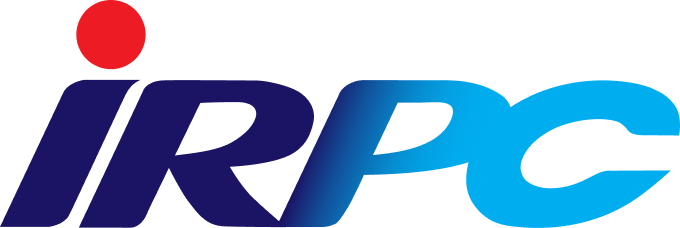View Board of Directors



IRPC has established the Corporate Governance Policy as an integral part of our business operations. The company has developed the Corporate Governance Policy and Corporate Governance Handbook as practice guidelines on ethical business conduct, which applies to Board of Directors, executives, and employees of IRPC, including subsidiaries, associates, and joint ventures within IRPC’s management control.
Aligned with these guiding principles, the Board has assigned the Corporate Governance and Sustainability Committee to oversee all aspects of the company’s operations, ensuring alignment with international benchmarks and compliance with applicable laws, regulations, and guidelines, as well as the company’s strategies and business direction. The Committee is also responsible for reviewing performance in accordance with the principles of good corporate governance on an annual basis through meetings with a subcommittee that reports the outcomes to the Board of Directors on a quarterly basis.
- Coporate Governance Structure
- Board of Directors
- Board Diversity Policy
- Board Industry Experience and Skills Matrix
- Board Effectiveness and Compensation
- Chief Executive Officer and President Compensation
Board of Directors
The Board of Directors plays a key role in defining IRPC’s vision, setting business direction, formulating policies, establishing goals, devising strategic plans, and approving annual budgets for implementation by the management to achieve predetermined objectives. Additionally, the Board assesses risk factors, establishes suitable management approaches, and ensures the credibility of accounting, financial, and audit systems.
Board Composition
The Board of Directors must consist of directors who possess the knowledge, skills, and experience aligned with the IRPC’s business interests. They are expected to fully fulfill their duties fully in accordance with their responsibilities. To ensure this, IRPC has defined the Board’s composition, key qualifications, and tenure as follows:
- The Board consists of 5-15 directors.
- At least one-third of the Board, or a minimum of three members, must be professional independent directors.
- Directors may serve until the age of 70.
- A director may serve up to three consecutive terms, totaling nine years.
The qualifications of an independent align with the criteria of the Thai Securities and Exchange Commission (SEC), including no involvement in management functions of the Company and subsidiaries, no familial or legal relationship with another director, no business relationships, and not serving as the Company’s auditor.
Additionally, IRPC imposes stricter requirements than the SEC, limiting independent director ’s shareholding to no more than 0.5% of all voting shares, compared to the SEC’s 1%.
Subcommittees
The Board of Directors comprises four sub-committees: the Audit Committee, the Nomination and Remuneration Committee, the Corporate Governance Committee, and the Risk Management Committee. Each is responsible for overseeing key aspects of the company.
Audit Committee
The Audit Committee reviews the reliability of the financial statements from IRPC and subsidiaries, as well as the internal control system, internal audit system and risk management system to ensure their suitability and effectiveness. Moreover, the Committee provides recommendations on the improvement of the internal control system. It’s shall consist of at least 3 independent directors who have qualifications, duties and responsibilities in accordance with the criteria set forth in the notifications of the Securities and Exchange Commission and the Capital Market Supervisory Board. Each of the members of the Audit Committee shall possess the knowledge, expertise and experience that the role demands. The Audit Committee shall have at least 1 director with sufficient knowledge and experience in accounting and finance to review financial reports to ascertain their accuracy and reliability. The current members of the Audit Committee are:

Nomination and Remuneration Committee
The Nomination and Remuneration Committee recruits qualified candidates to nominate as Board members and the CEO and President based on the established criteria and procedures that ensures efficiency and transparency, so that the Board is made of directors with diverse knowledge, capability and qualifications. Moreover, the Committee considers compensation for directors and the CEO and President by adopting equitable and reasonable criteria. The Nomination and Remuneration Committee shall consist of at least 3 directors, at least 1 of them shall be an independent director of the Company. The current members:

Corporate Governance and Sustainability Committee
The Corporate Governance and Sustainability Committee determines and monitors the organization’s annual performance, whether operational or strategic implementation, to ensure that IRPC conforms to the corporate governance and sustainability guidelines. The tasks include key aspects of corporate governance development, environmental governance, and social responsibility. It’s shall consist of a minimum of three directors, with at least one of them an independent director. Its role shall be to formulate corporate governance guidelines and provide advice to the Board. The current members are:

Risk Management Committee
The Risk Management Committee is responsible for overseeing the organization’s risk management. Meanwhile, the Board sets the overall policy, and the Audit Committee reviews the compliance with these policies. Each committee conducts risk assessments, covering potential impacts to IRPC (both external and internal, including emerging risks, i.e. cybersecurity, environmental and social perspectives), and providing risk management reports to the Audit Committee and Risk Management Committee for review. The Risk Management Committee shall consist of at least three directors who are petroleum or petrochemical experts. The current members are:

Independent Directors
According to IRPC’s principles of good corporate governance, one-third of the Board of Directors shall consist of independent directors. Both directors and independent directors should serve a term of three years. Independent directors who complete their term are eligible for reelection by shareholders but may serve a maximum of three consecutive terms, or nine years, with no exceptions. Independent directors must have the expertise and qualifications required for independence, as outlined by notifications from the Capital Market Supervisory Board and stipulations of the Board of Directors. Additionally, IRPC’s policy limits independent directors to holding no more than 0.5% of the company’s issued shares – a stricter requirement than the 1% limit set by the Securities and Exchange Commission (SEC).
The definition of an IRPC independent director is provided in the Corporate Governance Handbook and on the company website. Independent directors have the right to voice their opinions at every meeting and are expected to attend regularly. They will have access to sufficient financial and business information, enabling them to express their views freely and act in the best interests of stakeholders. They are also responsible for preventing conflicts of interest between IRPC and executive officers, authorized directors, and majority shareholders.
IRPC has defined and compared the qualifications of Independents Directors, demonstrating their consistency and higher stringency compared to the requirements of the SEC’s and Dow Jones Sustainability Indices (DJSI)’s criteria.
Non–executive Chairman/Lead Director
To ensure effective corporate governance and avoid potential abuses of power, IRPC specifies that the Chairman of the Board and the CEO and President must be separate individuals. The primary role of the Chairman is to lead and provide guidance to the company’s Board of Directors, ensuring the highest standards of corporate governance within both the Board and the company, particularly in discussions on all proposals put forward by the management team.
The CEO and President and the Executives
The Board of Directors assigned the Chief Executive Officer and President, the highest-ranking executive of the management, to manage the company’s operations in accordance with the objectives, regulations, and policies set by the Board.
Board Diversity Policy
IRPC supports an appropriate balance and diversity of skills, experience, race and gender within the Board of Directors and has implemented the Board Diversity Policy to ensure transparency of the appointment processes in compliance with Corporate Governance Policy. The policy mandates the Nomination and Remuneration Committee to address Board vacancies by actively considering candidates who bring a diverse background and opinion from among those candidates with the appropriate background and industry or related expertise and experience as well as achieving an appropriate level of diversity.
Board Industry Experience and Skills Matrix
According to IRPC’s Corporate Governance Handbook, the Board of Directors should comprise at least three directors with expertise in the petroleum and petrochemical industries, at least one with expertise in law, and at least one with expertise in accounting or finance. The following factors, as stipulated in the nomination policy and criteria, should be considered: educational background, management skills in their respective fields, and significant achievements and recognition within the comparable scale of business.

Board Effectiveness and Compensation
IRPC determines that the evaluation of Board of Directors performance, including assessments of the Board, subcommittees, and individual directors, is conducted annually to facilitate a comprehensive review of performance, challenges, and achievements throughout the preceding year. The performance assessment of the Board, as outlined in the Corporate Governance Handbook, is conducted in both forms of self-evaluation and cross-evaluation methods. Additionally, the performance assessment is evaluated by an external assessor every 3 years (Independent Assessment) and the results of such evaluation are to be reported to the Corporate Governance Committee, shareholders, and disclosed in the annual report. The assessment results are also utilized to drive further performance improvements. In addition, IRPC encourages our directors and executive officers to attend training programs that are beneficial to the performance of their duties, enabling them to enhance their skills, stay updated on industry trends, and effectively fulfill their responsibilities.
The Nomination and Remuneration Committee is responsible for reviewing Board compensation, providing recommendations to the Board for approval, and proposing the compensation amount at the annual general meeting for shareholder’s approval, ensuring transparency and adherence to the Compensation Best Practices released by the Thai Institute of Directors Association. Director compensation is linked to short- and long-term corporate strategies, ensuring compensation packages are appropriate commensurate to the size and complexity of IRPC’s business.
Chief Executive Officer and President Compensation
The Board of Directors requires the CEO and President of IRPC to submit an annual performance report, which is assessed by the Nomination and Remuneration Committee. The Board then uses this review to determine the CEO and President ‘s remuneration. However, the assessment outcomes remain confidential.
The evaluation criteria include ambitious targets aligned with the company’s short- and long-term strategies, covering both financial and non-financial performance, such as social, community, and environmental responsibilities. The CEO and President is responsible for managing the business and driving the organization forward, with performance assessed based on two indicators: corporate KPIs, accounting for 70% of the evaluation, and supporting factors that enhance the company’s transparency and sustainability, comprising the remaining 30%.
Salary adjustments and annual bonuses for the CEO and President are determined based on this performance review and are subject to Board approval. In addition to challenging targets, the evaluation considers key performance indicators tied to the company’s strategic plan and vision, corporate responsibilities related to communities, society, and the environment, as well as a Balanced Scorecard. The remuneration of IRPC’s CEO and President is also benchmarked against that of executives in similar industries.
Success Matrix
Corporate KPIs (70%)
Sustainable Growth Factors (30%)
- Financial Perspective: EBITDA
- Stakeholder Perspective: Customer Satisfaction, Community Satisfaction, Employee Engagement, DJSI Sustainability Assessment, GHG Emissions
- Internal Process Perspective: Operational excellence, refinery resilience implementation, %specialty product, strengthen project, new stream project
- Learning & Growth Perspective: cyber security scorecard, talent development
- Results of opinion survey among members of the Board of Directors and the Management
- Implementation of New Core Behaviors (IRPC G3)
- Outstanding management skills/crisis management
Moreover, IRPC compares the company’s performance assessments with other companies in the same industry, particularly concerning financial indicators, to evaluate the CEO and President’s compensation relative to the organization’s financial performance. IRPC calculates our financial metrics and those of peers over a three-year period. This assessment compares the weighted average performance rank with the salary rank of IRPC’s CEO and President relative to peer company presidents. The comparison provides insights into IRPC’s relative financial performance.
Compensation of the President and Chief Executive Officer and Executive
IRPC discloses the fixed and variable compensation of the CEO and President, and executives as follows:
Note:
1. Executive Level 1 definition according to the Securities and Exchange Commission consists of : i) President and CEO; ii) Senior Executive Vice President of Corporate Accounting & Finance, Corporate Strategy, Corporate Commercial and Marketing, Corporate Organization Effectiveness, Innovation and Operation Excellence, and Petrochemical and Refinery Operation.
2. The total President’s remuneration included from IRPC and PTT.
In addition, IRPC provides disclosure of the mean and median annual compensation of all employees, along with the ratio between the mean and median employee compensation and the total annual compensation of the CEO and President:
Compensation (THB)
2021
2022
2023
2024
Total annual compensation of the CEO
16,427,919
19,826,122
13,312,803
11,420,120
Median annual compensation of all employees, except the President
1,156,338
1,585,298
1,242,282
1,174,684
Mean annual compensation of all employees, except the President
1,273,372
1,882,039
1,343,906
1,081,765
Ratio between the total annual compensation of the President and the median employee compensation
10.49
7.12
10.72
9.72
Ratio between the total annual compensation of the President and the mean or employee compensation
9.53
5.99
9.91
10.56
Topics related to compensation
Claw back Provision
IRPC’s Claw back Provision is established in accordance with the Securities and Exchange Act B.E. 2535, Section 89/7. Under Section 89/7, executive management is entrusted to managing the company with due diligence and integrity, and in compliance with laws, the company’s objectives, regulations, and resolutions from both the Board and shareholders’ meetings. Additionally, the executive management can face prosecution under Section 89/18 without conflicting with section 89/19 if it can be proven that they have not been performing their duties according to 89/7 or have engaged in direct or indirect misconduct. In such cases, executive management and any implicated individuals are required to return any benefits they have received.
Management Ownership Encouragement
To foster a sense of individual ownership, which is part of corporate’s desired behavior and a theme of IRPC DNA, our President and CEO has encouraged IRPC employees, particularly executive members, to voluntarily acquire shares of IRPC. This initiative aims to deepen their commitment and establish long-term trust with our investors. Nonetheless, all must adhere strictly to the regulations established by the Securities and Exchange Commission to prevent insider trading or unethical behavior.
President and CEO and other executive officers hold company shares (as of Dec 2024)
Position
Name(s)
Multiple of base salary
President and CEO
Mr. Terdkiat Prommool
0
Average for other executive committee members
IRPC’s Executive level refer to the position that has one level below president position, which is equivalent to senior executive vice president level.
The names of IRPC’s executives that hold IRPC shares are as follows:
- Mr. Pranarch Kosayanont
- Ms. Wanida Utaisomnapa
- Mr. Lersak Thongruang
3
Conflict of Interest Prevention
The Board of Directors arranges for individual directors and executives to file their potential conflicts of interest for use as basic information to provide oversight into this matter. The reports are then forwarded to the Company Secretary who retains, gathers the reports and then submit copies to the Board Chairman and chairman of the Audit Committee as reference in examining and supervising conflicts of interest
In addition to adhering to SEC Office regulations regarding the disclosure of directors’ and executives’ conflicts of interest, IRPC mandates that all directors, executives, and employees, including those of subsidiaries, joint ventures, and companies where IRPC has controlling stakes, disclose any potential conflict of interest in transactions involving IRPC or IRPC Group.
Reporting Securities Holdings
The company mandates that Board members and executive officers, along with their lawful spouses, cohabiting partners, and underage children, report any changes in their holdings of IRPC securities to the company, the Stock Exchange of Thailand, and the SEC Office within three business days of any transaction. Additionally, they are required to disclose such trades to the Board on a monthly basis. The company also has a policy to impose Blackout Period to prohibit trade in IRPC securities for a period of 30 days prior to and within two days after public disclosure of the company’s financial statements.
In 2024 and over the past five years, no directors or executive officers have been involved in any wrongful activities under the Securities and Exchange Act B.E. 2535 (1992) or Derivatives Act B.E. 2546 (2003), or any record of the following:
- Dishonesty or severe negligence.
- Disclosure or dissemination of false information or messages that could lead to misunderstanding, or concealing essential facts that should be disclosed, both of which could affect the decisions of shareholders, investors, or concerned parties.
- Unfairness or taking advantage of investors in the sale and purchase of shares or derivatives or playing a part in supporting such activities.
Voting Rights
IRPC’s policy stipulates that each share entitles the holder to one vote, and the company does not issue golden shares, or dual class shares under any circumstances. Regarding non-voting depository receipts (NVDRs), NVDR holders cannot be involved in company decision-making, therefore, the holders cannot be granted voting rights. The definition of NVDR can be found on Stock Exchange of Thailand’s website



